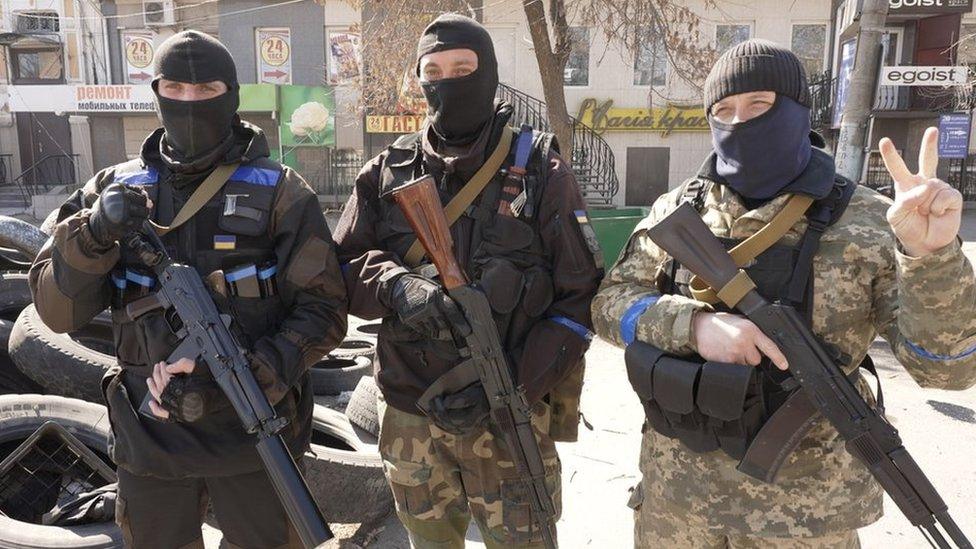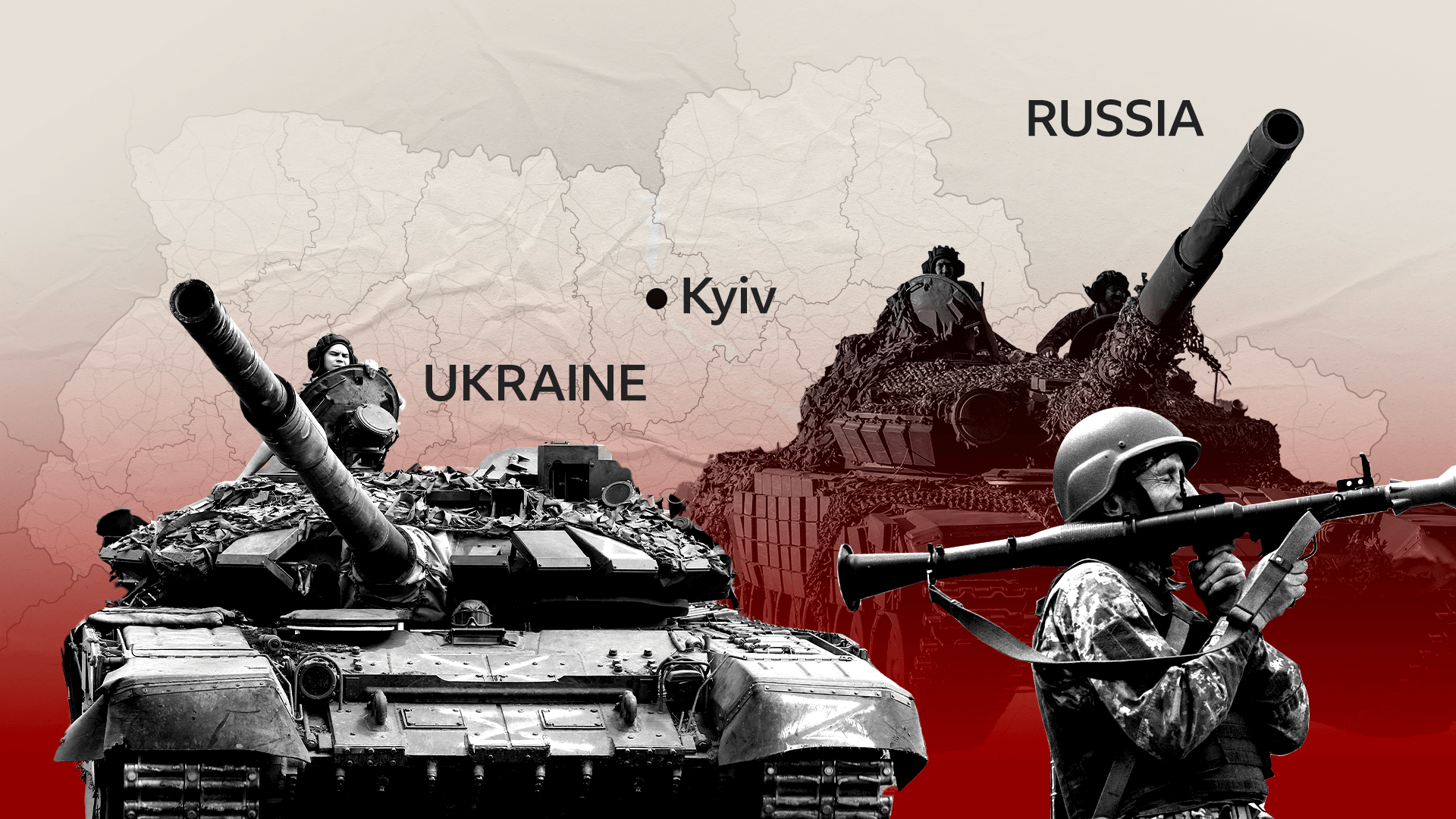Ukraine war: Nato to send more troops to eastern Europe
- Published
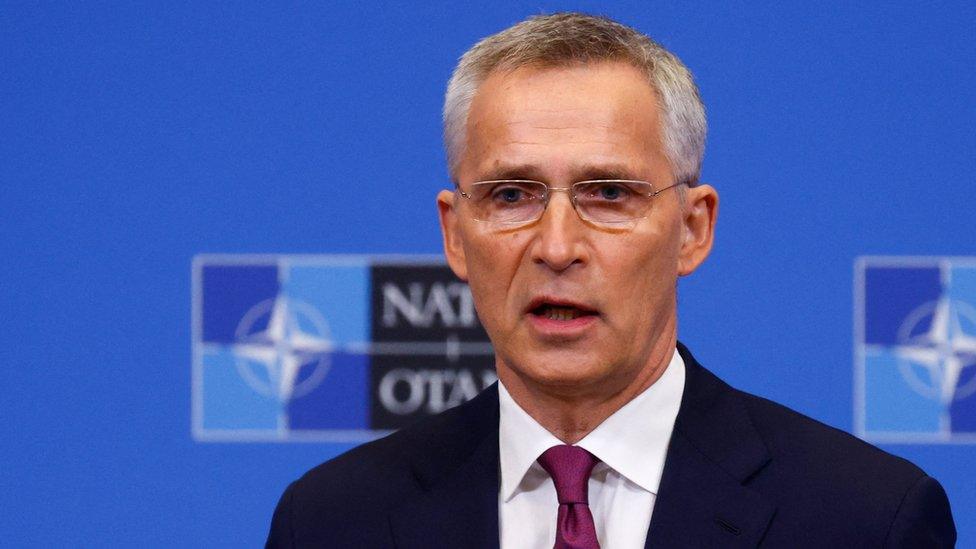
Nato's secretary-general, Jens Stoltenberg, said it is poised to send troops to Hungary, Slovakia, Bulgaria and Romania
Nato is set to approve big increases in the forces deployed on its eastern flank, its secretary-general Jens Stoltenberg has said.
Mr Stoltenberg was speaking at a news conference on the eve of an emergency summit on Russia's invasion of Ukraine.
He pledged more troops for Hungary, Slovakia, Bulgaria and Romania.
Nato will also agree more support for Ukraine, including greater protection against the use of chemical, biological and nuclear weapons.
US President Joe Biden is on his way to Brussels for the summit on Thursday and for other meetings with European leaders.
While he is in Europe the US is expected to announce further sanctions on Russian political figures and oligarchs.
National Security Adviser Jake Sullivan also said G7 leaders would agree to co-ordinate on sanctions enforcement.
The news comes as Ukrainian President Volodymyr Zelensky, in an address to the French parliament, urged a number of major French companies to pull out of Russia.
And media reports have emerged that in recent years Israel refused to sell Ukraine its Pegasus spyware system, external because of fears of provoking Russia.
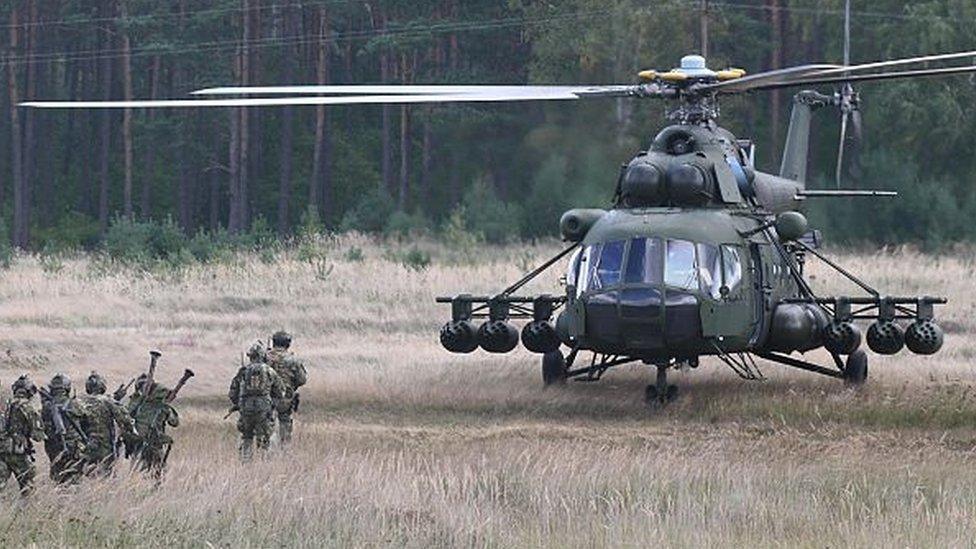
Nato has about 40,000 troops on its eastern border
Mr Stoltenberg said he expected leaders would "agree to strengthen Nato's posture in all domains, with major increases in the eastern part of the alliance. On land, in the air and at sea".
In all, Nato has about 40,000 troops on its eastern border, stretching from the Baltic to the Black Sea.
"There is a new sense of urgency because we cannot take peace for granted," Mr Stoltenberg told reporters.
He warned Russia against using nuclear weapons in Ukraine, calling for a halt to Moscow's "dangerous, irresponsible nuclear rhetoric".
He added that that any use of biological or chemical weapons would have "far-reaching consequences", while stressing that Nato was ready to "protect and defend allies against any threat, any time".
Meanwhile US Secretary of State Antony Blinken said Washington had concluded, following a "careful review of available information", that Russian forces had committed war crimes by attacking civilians.
Last week Mr Biden described Russian President Vladimir Putin as a "war criminal".
The remark has infuriated the Kremlin, which shows no sign of backing down - a month into the invasion.

War in Ukraine: More coverage

Russia has been largely isolated, and on Wednesday, Poland said it was expelling 45 Russian diplomats accused of intelligence activities, about half of those currently working at the Warsaw embassy.
Russia's ambassador said there was no basis for the accusations.
The US has also been given a list of diplomats to be expelled from Russia, in retaliation for the expulsion of Russian diplomats at Moscow's UN mission in New York.
Related topics
- Published23 March 2022
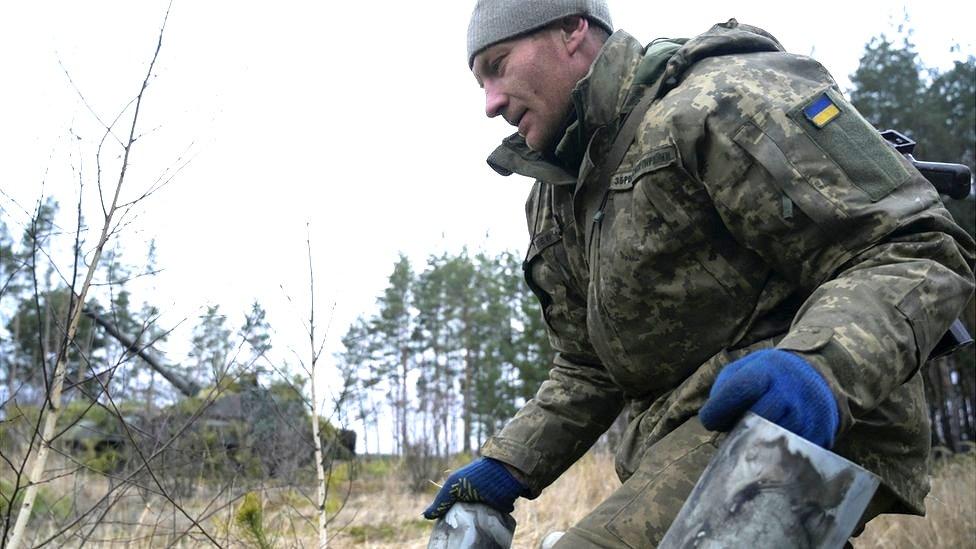
- Published22 March 2022
